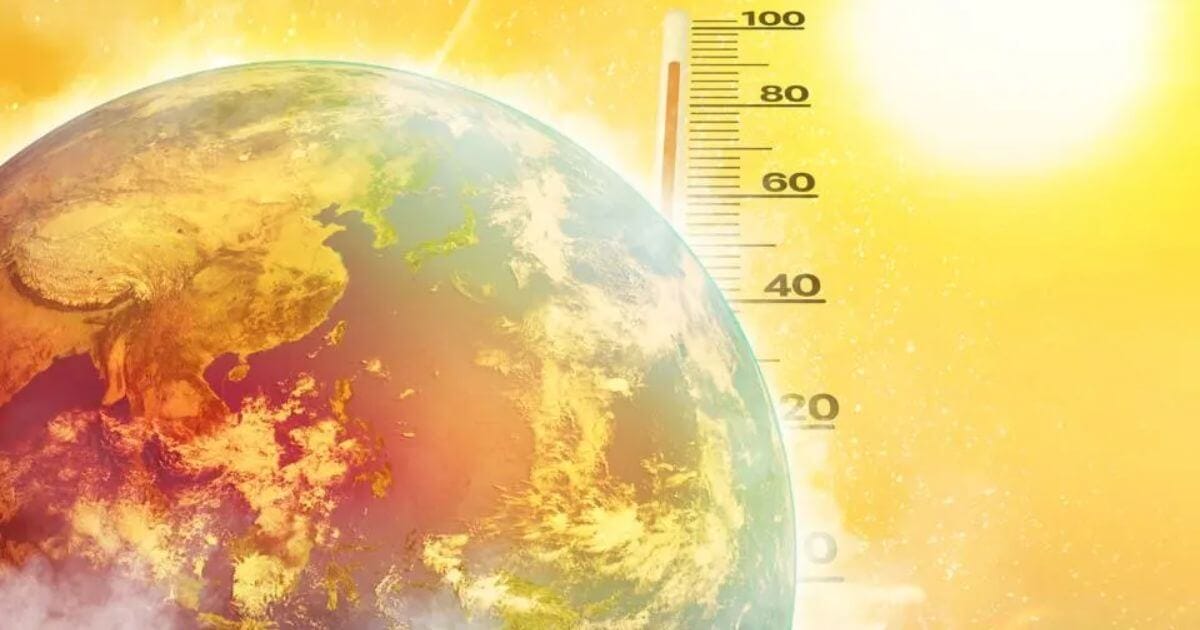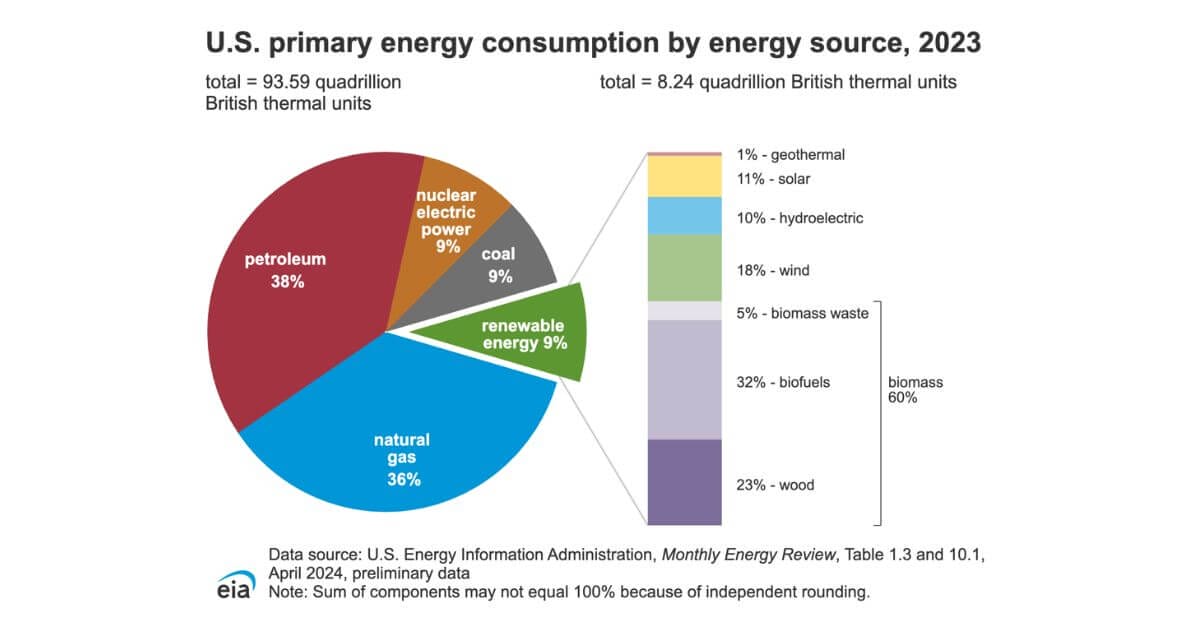This article seeks to explain climate change for an American audience who are not experts, who have different levels of knowledge and interest, and who range across the political spectrum. It is exactly 1,000 words (excluding the title).

GETTY
According to the U.S. Energy Information Administration (EIA), fossil fuels provide about 83% of the energy needs in the United States. Nuclear and renewable energy each provide 9%, with 60% of the latter coming from biofuels. The production and consumption of fossil fuels generates carbon dioxide (CO2) which accumulates in the atmosphere and traps heat, a greenhouse effect (leading to the commonly used term “greenhouse gas”). Since the beginning of the Industrial Revolution in the mid-18th century, the amount of CO2 (often called “carbon emissions”) has increased by 150%. It is difficult to put a precise figure on how much warming has taken place, but it is around 2°F or 1°C. Most of this warming has taken place over the past 40-50 years.

U.S. Energy Information Administration
Global warming has consequences for weather. According to NASA, global warming “is impacting extreme weather across the planet. Record-breaking heat waves on land and in the ocean, drenching rains, severe floods, years-long droughts, extreme wildfires, and widespread flooding during hurricanes are all becoming more frequent and more intense.” If global warming continues, these effects will be even more severe, such as rising sea levels which could put many U.S. cities underwater by 2050. The year 2050 is often cited by those who study climate change, trying to anticipate its effects and how to mitigate and adapt to global warming. The general scientific consensus is that in order to avoid the most serious consequences of global warming, the temperature rise should be kept to around 2°C or 3.6°F by 2050.
The issue of climate change due to global warming is an extremely complex one and it has become highly politicized in the U.S. While 72% of Americans believe that global warming is happening and 59% believe it’s due to human activity, there is substantial variance in opinion about how serious of a problem it is now and will be in the future, what and how much should be done about it, who is responsible for dealing with it, and what costs should be incurred and by whom to address it.
I have written about the vast divide between Republicans and Democrats, with Independents in the middle, (closer to Democrats). For many Republicans the very terms “global warming” and “climate change” are associated with a more general progressive Democratic political agenda which they don’t support. Climate change is one of many topics about which there are strong feelings in our very polarized country. This makes it a very difficult issue from a public policy perspective, and we vividly see this when comparing the current administration to the previous one.
At the heart of the debate in America about climate change is fossil fuels. Because they are a primary source of carbon emissions (although not the only one with animal agriculture, especially cattle, also being an important one) those who are most concerned about climate change think that fossil fuels should be replaced with renewable energy, especially solar and wind, as quickly as possible. Cost is a major consideration, especially if it is not competitive with fossil fuels, particularly compared to natural gas which the U.S. has in abundance.
Even if renewables are cost competitive without government subsidies, these projects always face challenging permitting issues regarding the land for the project, often exacerbated by permitting issues to build the transmission lines to get the energy into the electrical grid. There are also challenges with reliability since battery storage technologies need further development. Nuclear power provides carbon-free baseload power but faces challenges of public acceptance, cost, and permitting. Geothermal can also provide very low-carbon baseload power but this technology is still being developed. Other technologies being developed are capturing carbon that is produced and removing carbon that is already in the atmosphere (direct air capture).
Another important debate concerns the relative roles of the public and private sectors. Liberals typically advocate for strong government action such as subsidizing renewable energy, providing incentives to purchase electric vehicles and heat pumps, requiring companies to report on and reduce their carbon emissions, asking financial institutions to do the same regarding their portfolio companies, and putting a price on carbon. The concept of “net zero,” meaning the company or financial institution is no longer contributing to an increase in atmospheric CO2 plays a prominent role. Conservatives who work on climate change put a greater emphasis on market forces and innovative, even breakthrough, technologies. Those who favor strong government action see global warming as a more immediate and pressing problem than do those who prefer market forces.
A third important debate is the relative emphasis on mitigation (efforts to prevent global warming) vs. adaptation (dealing with the effects in various ways). Those who emphasize mitigation argue that costs incurred today are less than the costs of dealing with the problem in the future. Those more focused on adaptation argue the reverse. There are no simple answers here. While the effects of climate change exist today, it is still very difficult to know the extent to which extreme weather events are due to global warming vs. other factors. Constructing future scenarios far into the future (like 2100) in order to assess mitigation vs. adaptation strategies is extremely difficult and filled with uncertainty.
Where does this leave the average American? Each person has to decide for themselves such things as how much time they want to spend learning about and engaging on this issue (e.g., through voting, community efforts, and expressing their views in various ways), how important it is in the total picture of their life, and what changes (if any) they want to make in their own lifestyles (such as diet and frequency and modes of transportation). People who have more money have the luxury of having more choices. Another important choice is the extent to which a person engages with others, including those who have a very different view. Whatever choices an individual person makes will have no effect on climate change. That said, America will benefit if everyone respects the choices that others make.
Robert G. Eccles is a Forbes Contributor and you can also find him on LinkedIn.

